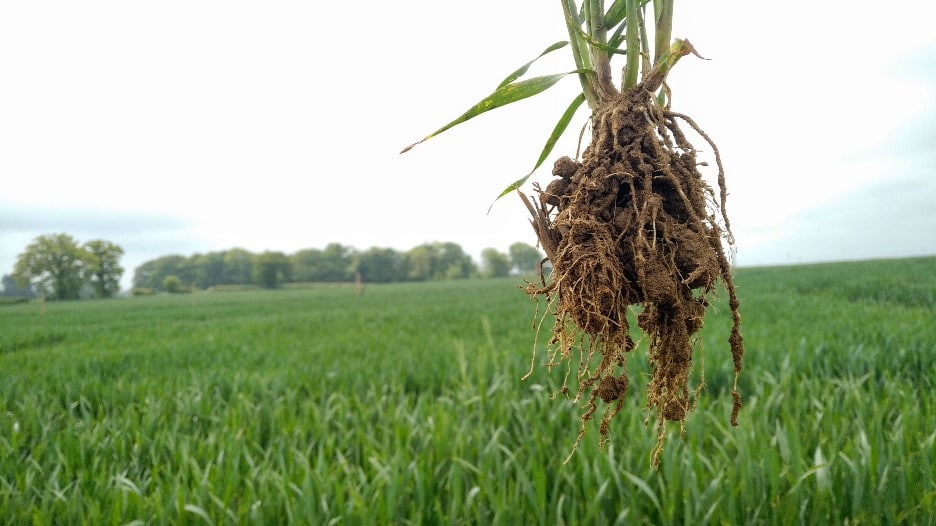< News
The root microbiome keeps plants healthy by providing nutrients, drought resilience and protection against disease
23/06/21
As the climate changes, studying the microbiome of roots of crops is increasingly important as we seek new strategies to boost crop yields and resilience.
Sam Prudence, Jake Newitt, and colleagues at the John Innes Centre (JIC) and UEA used amplicon sequencing to profile the root microbial community of wheat cultivated at the JIC Agricultural Field Experimentation site. By comparing these microbiomes in different soils and growth stages, they identified a core group of microorganisms which consistently colonised bread wheat plants, including beneficial bacteria such as Pseudomonadaceae, Burkholderiaceae and Streptomycetaceae. The Streptomycetaceae were the most highly enriched taxon in the endosphere and confer many benefits on plants, including defence against disease.
Plants exude carbon-rich compounds into the soil around their roots to recruit beneficial microbes and the authors used 13CO2 stable isotope probing to identify the bacteria that were utilising host-derived (13C-labelled) carbon in the rhizosphere; this highlighted nine taxa which utilise host derived carbon, though only a portion of the core associated taxa were present. This indicates that the recruitment of microorganisms to plant roots is a complex and multifaceted process and warrants further exploration of broader factors which are involved in microbiome assembly. To read more about this research please see: https://doi.org/10.1186/s40793-021-00381-2


